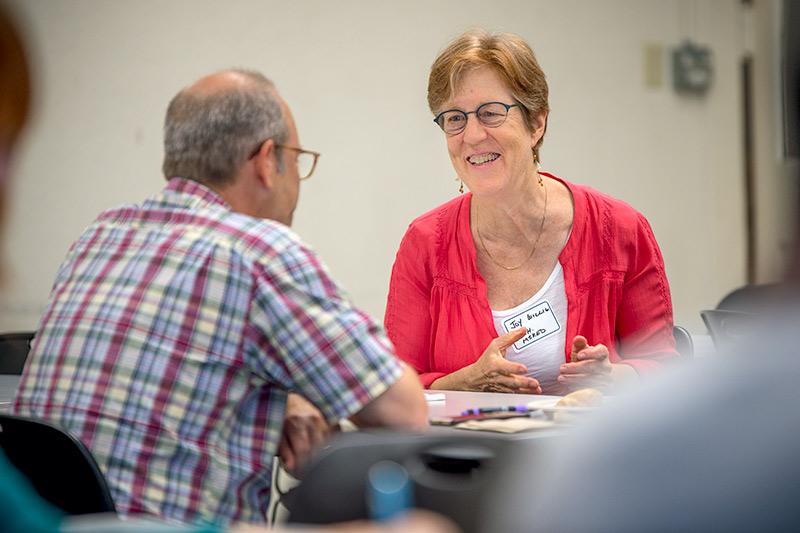From faculty game comes interdisciplinary course ideas
Tulane University faculty members representing different fields across the uptown campus, teamed up Monday for a unique teaching collaboration workshop hosted by the Center for Engaged Learning and Teaching (CELT).
Set up in a “speed-dating format,” professors from varying disciplines were paired for 8-minute rounds where they were asked to develop an innovative new interdisciplinary class.
Prizes were awarded to teams with the most inventive course concepts.
“The goal is to get to know people from different departments and to sow seeds for possible interdisciplinary work,” said Toni Weiss, CELT associate director and Lawrence MvD Schloss Senior Professor of Practice in economics.
Founded in 2011, CELT fosters faculty development and offers students opportunities to participate in engaged learning experiences. This is the second year that the center hosted the workshop in hopes of sparking possible teaching and research collaborations between faculty members.
“I hope they come away with fresh ideas about teaching,” said Susann Lusnia, CELT executive director and associate professor of Classical Studies.
During the event’s first round, Lusnia teamed up with Dorothy Cheruiyot, professor of practice in ecology and evolutionary biology.
“Plants and Human Affairs,” a course that Cheruiyot currently teaches, served as the inspiration behind her collaboration with Lusnia.
“This semester I’m teaching a course on archaeological sciences, where we talk about herbal-based Roman medicines. It could be interesting to do a course on ancient and modern plants,” noted Lusnia.
Dubbed “The Ancient and Modern Herbalist,” the duo’s proposed class would have students explore the role of plants in Roman history.
The workshop culminated in a vote for the most creative course proposal and most feasible concept.
“The Life of Science: Storytelling based on Scientific Processes” was selected as the most creative proposal, and “Women’s Roles in War from Classical Times to Modernity: Greek, Roman, Peru and Guatemala” was picked as the most feasible idea.
Like this article? Keep reading: Archaeological sciences course gears up for big year

